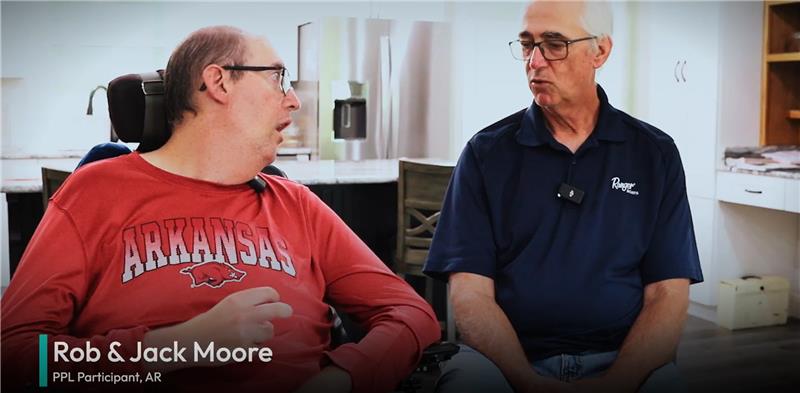Protection by Design: How Self-Directed Care Programs Control Fraud, Waste, and Abuse
By PPL on May 15, 2025

With the current focus on government efficiency, we thought it’d be a good time to look at the many ways in which self-direction programs safeguard taxpayer dollars from fraud, waste, and abuse (FWA).
Common misconceptions about fraud in self-direction programs
Self-direction programs have historically received a bad rap when it comes to FWA. And you can see why: On the surface, it seems like it would be easy for a participant and their caregiver (who is often a friend or family member) to agree to inflate hours and split the extra cash.
In fact, there are many protections against FWA built into well-managed self-direction programs.
Participants don’t just get a chunk of money in their bank account every month. First, the participant’s needs are evaluated by a professional care manager, clinician, or other qualified entity. A care plan is developed, and a service authorization is created. A Financial Management Services (FMS) company—also known as a fiscal intermediary— makes sure payments to providers are in accordance with the service authorization. They also ensure that the money goes where it’s supposed to, while meeting the individual needs of the participant.
Efficiency in self-direction
Self-direction programs allow participants to recruit, hire, and schedule their own providers (caregivers). In some programs, participants are given a budget and can select from a range of services and providers to execute their care plan. Fiscal intermediaries and program administrators (Medicaid agencies, social services agencies, or health plans) ensure that providers meet program and government requirements.
In traditional models, multiple layers of management are involved in selecting services and allocating funds. Each additional layer is a potential point at which fraud, waste, or abuse could occur. Remember, waste and abuse are often unintentional, and the more complex the administration, the more likely it is that FWA will occur.
Participants naturally avoid unnecessary expenditures because they are completely invested—every decision impacts their own care. This direct responsibility encourages careful planning, budgeting, and spending—naturally minimizing waste. The participant has a fixed amount of money to pay for their services and supports. Any time that money goes somewhere—or to someone—that it shouldn’t, those services will be impacted.
Transparency and Accountability
One of the real strengths of well-administered self-direction programs is their transparency. Participants can see where their allotted hours or funds are being used, at any time. This significantly enhances accountability. Because participants have a personal stake in managing their hours and funds effectively, they become stewards of resources. Behind-the-scenes support from fiscal intermediaries helps drive seamless and compliant financial transactions while maintaining participant autonomy.
Proactive FWA Prevention
So, we can see how empowering participants inherently reduces the opportunity and appetite for fraud. And since they are paying close attention while managing their own allocations, discrepancies become quickly apparent. It’s like having a dedicated fraud investigator with just one case to scrutinize.
Program-mandated tools like Electronic Visit Verification (EVV) and budget tracking systems further bolster program integrity. Participants frequently become the first line of defense against inaccuracies or fraudulent activities; it’s in their own self-interest to promptly report any discrepancies or irregularities. This helps mitigate risk and leads to speedy resolution of issues.
Reduced Administrative Costs
Medicaid’s administrative costs are around 4% of overall expenditure. While there’s no definitive single statistic representing administrative costs in self-direction programs across the states, for many programs, fiscal intermediaries’ fees are under $100 per participant per month and cover a range of services.
Technologies like EVV can also help reduce overhead. Caregiver service time is tracked on a device that verifies the location of the caregiver, which is typically in the participant’s home. This inherently discourages caregivers from submitting requests for payment when they were not actually providing the required service.
Good for Participants, Good for Medicaid
Self-directed care is great for participants, but dig under the surface a little, dispel some common misconceptions, and you can see that a well-administered self-direction program also minimizes Medicaid fraud, waste, and abuse. By giving fiscal and compliance responsibility to participants, we promote transparency, reduce administrative overhead, and encourage sensible spending. Highly compliant, accountable and transparent self-direction programs can deliver significant benefits to participants, their families, and budget-conscious Medicaid directors.



